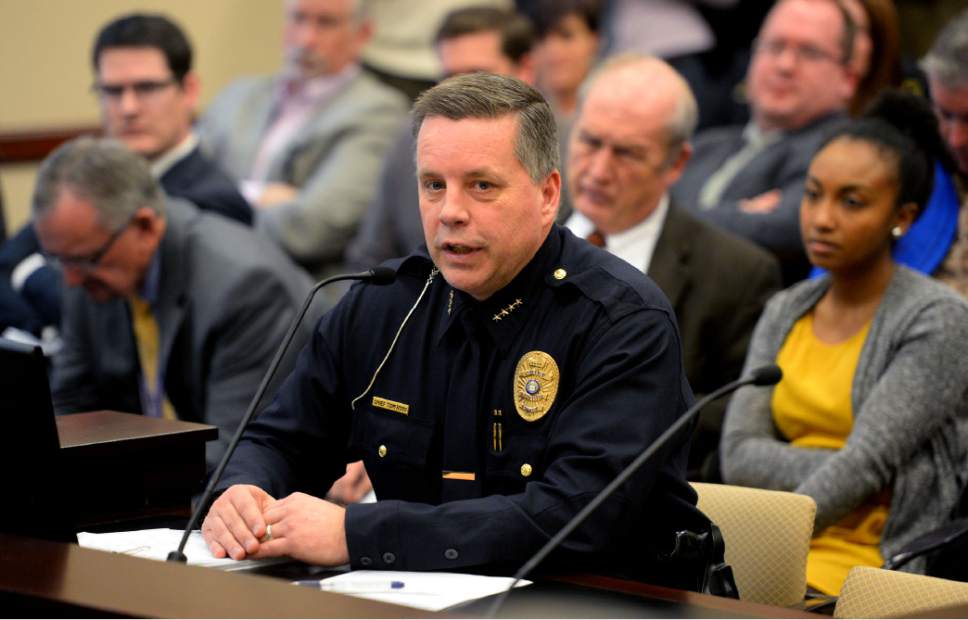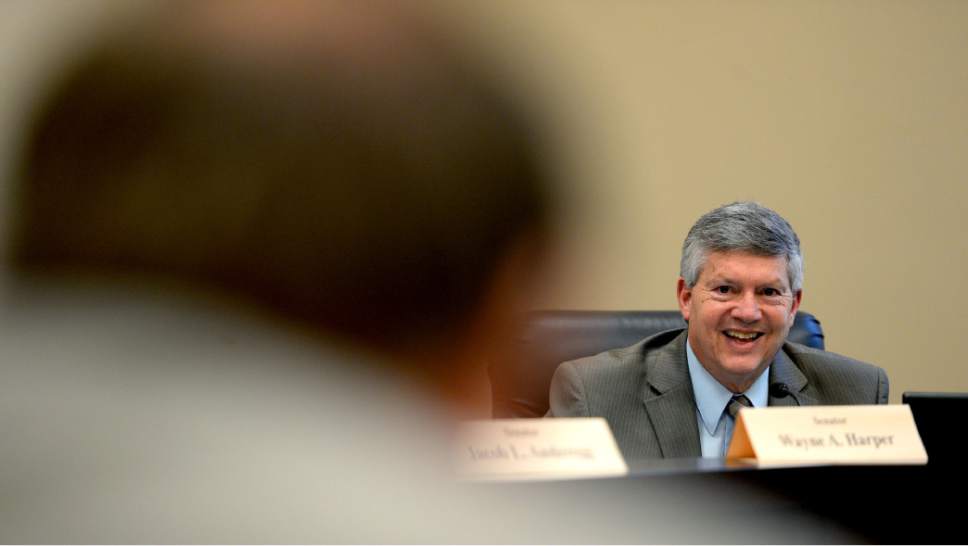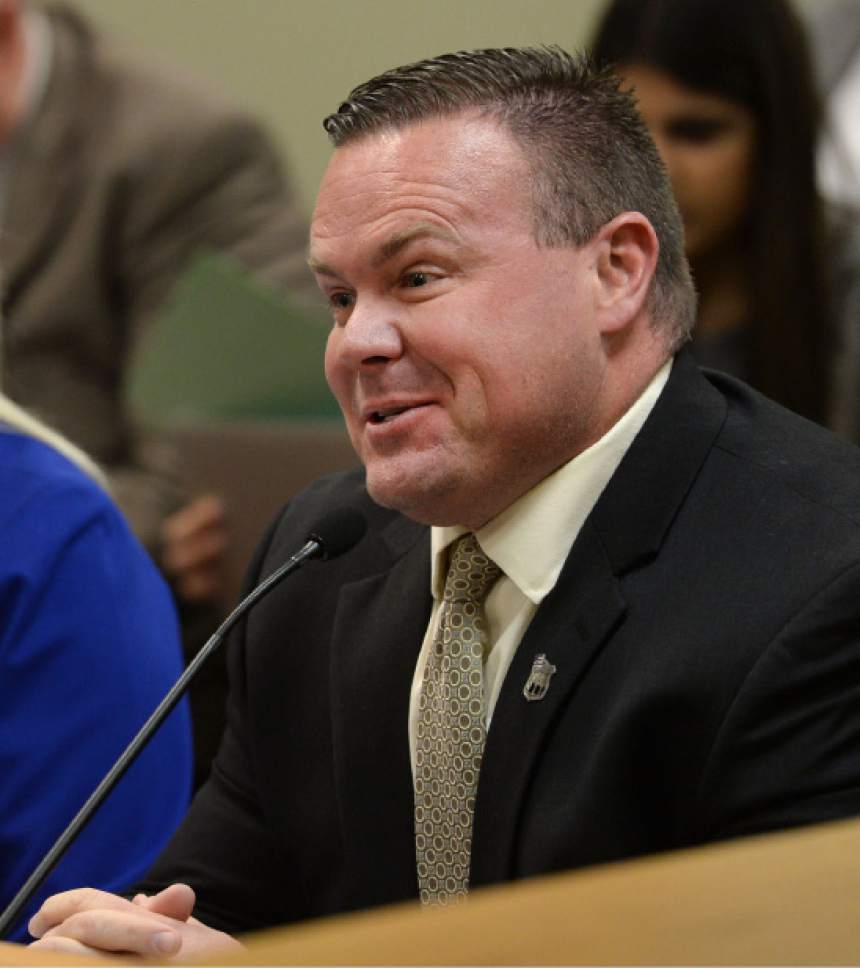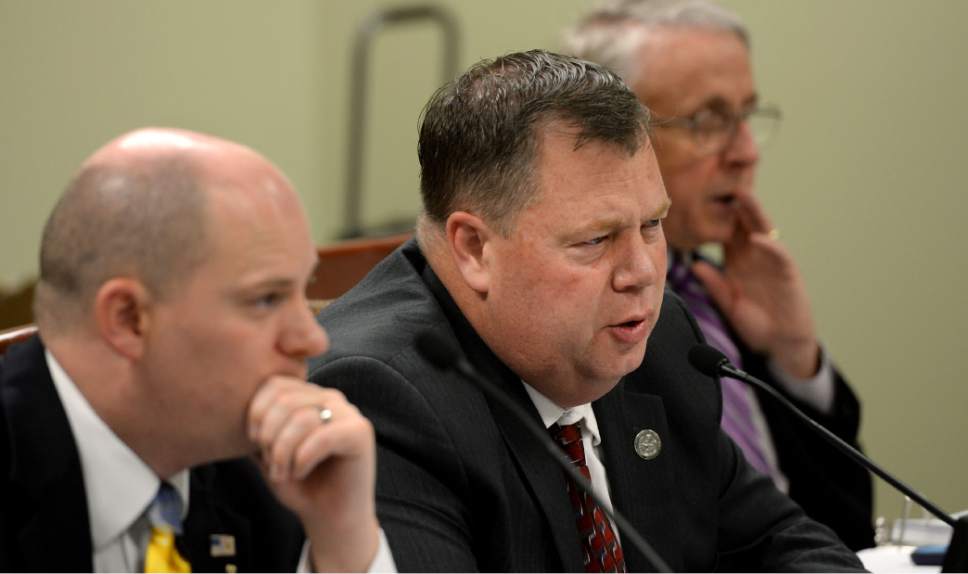This is an archived article that was published on sltrib.com in 2017, and information in the article may be outdated. It is provided only for personal research purposes and may not be reprinted.
Utah telephone users could soon pay an extra 38 cents a month on every cellphone and landline — 50 percent more than now — to help upgrade what officials say are antiquated 911 and public safety radio systems statewide.
The same bill that seeks to do that, SB198, would also makes many reforms to the Utah Communications Authority after an official embezzled $1 million from it recently.
The Senate Transportation Committee endorsed the bill Monday on a 5-1 vote, and sent it to the full Senate.
Sen. Wayne Harper, R-Taylorsville, sponsor of the bill, said it seeks to make many fixes suggested by audits over the past year "to enhance the safety of the state of Utah … by changing governance, operation, accountability and funding" of UCA.
Harper said the proposed $1.14 per line monthly fee — up from the current 76 cents — would take effect on July 1, 2018, to give time to review expected plans on how to upgrade aging 911 and radio equipment to ensure they would be a good use of money.
The increase would fund a planned $140 million upgrade of equipment and system improvements that UCA has sought for several years.
"We've had people who have died because of calls that have been transferred back and forth" between "public safety answering points" for 911 calls, Harper said.
"We're making sure that doesn't happen again, that you take one call and you own it and you take care of that person even if they are driving down the freeway and go through different counties," he said.
Harper added, "We've got radio systems out there that are 15 to 18 years old. We've got to update those." And newer systems designed to more easily track the location of cell phone calls are coming, and would require replacing the backbone of some current systems.
The bill also would reduce the number of UCA Board members from 27 to 11. Each member would each represent a different group of counties, and each area would have a regional advisory board of users .
Board members would also be subject to confirmation by the state Senate.
"We've got to have the right people reviewing it properly so we get it done and improve the service that is being provided now," Harper said.
He said other reforms in his 98-page bill would include new reviews and other steps recommended by audits to "make sure the money is going exactly where it is supposed to be." It would also spread money, on a per-call basis, more evenly around the state.
UCA would be required to conform to the state's procurement code, which is tighter than procedures it had been using.
Last year, longtime director Steven Proctor resigned in the wake of a $1 million embezzlement scandal that had been going on for a decade.
His former administrative assistant, Patricia Nelson, and her daughter, Crystal Evans, admitted in a civil lawsuit to racking up huge personal expenses on the agency's credit cards and covering their tracks by manufacturing phony papers. No allegations of wrongdoing were made against Proctor.
UCA Board Chairman Tina Mathieu supported the bill. She said the agency is working to implement all recommendations from recent audits — which the bill would put into statute — and "we believe UCA is on the right course."
She said time is also overdue for the money that would come from the fee hike.
"Our system is literally being maintained right now by parts we are buying from eBay, and from other cities, as they replace their outdated systems," she said. "This is our fourth year that we've been before the Legislature asking for funding for this project."
John Inch Morgan, director of the Salt Lake Valley Emergency Communications Center, said "As society adopts new technology with cellphones and voice over internet and many different ways of communicating, we're still 12 years behind and we need to catch up so we can receive those calls" and locate callers quickly.









